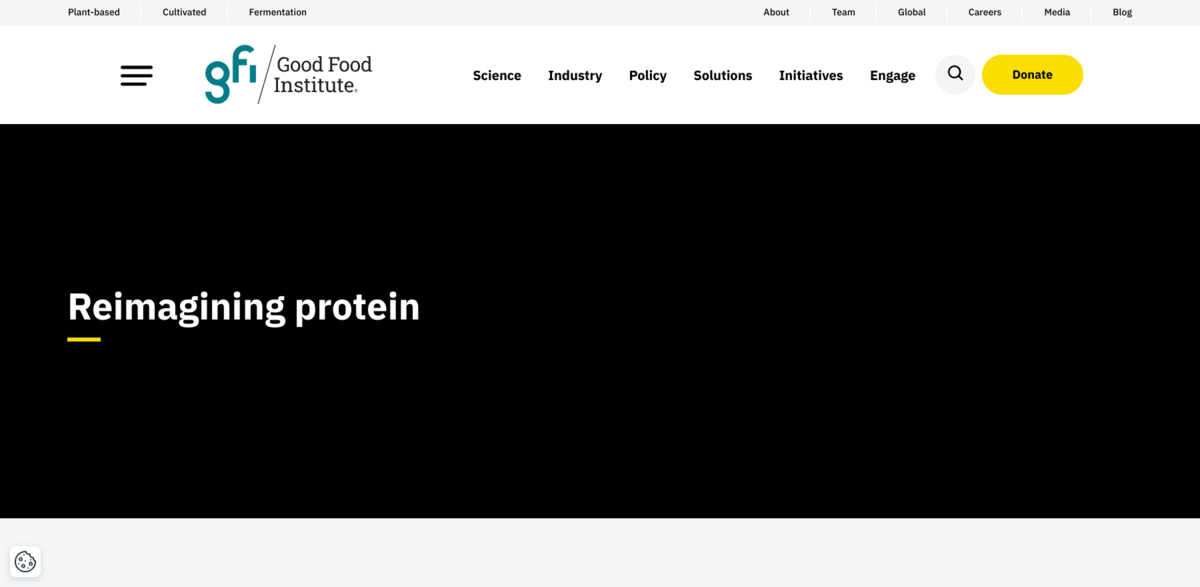What the Project Is
The Good Food Institute is a nonprofit think tank and international network of organizations working to accelerate alternative protein innovation to build a more sustainable, secure, and just food system. Global demand for meat and seafood continues to grow. Meat consumption worldwide is projected to rise by at least 50 percent by 2050 from 2012 levels. Producing meat from plants, animal cells, or via fermentation can help meet that growing demand in ways that strengthen and diversify global supply chains, conserve land and water resources, reduce emissions, protect public health, build thriving bioeconomies, and help usher in a new chapter of agricultural innovation. GFI is building a world where alternative proteins are no longer alternative… a bold and forward-thinking vision for our future.
Main Benefit
- Nonprofit think tank accelerating alternative protein innovation
- Global meat consumption projected to increase by 50% by 2050
- Innovative production methods using plants, animal cells, or fermentation
- Strengthens and diversifies global supply chains
- Conserves land and water resources while reducing emissions
- Protects public health and builds thriving bioeconomies
Innovative Approaches to a Sustainable Food Supply
Alternative protein production transforms traditional meat production by harnessing plant-based ingredients, cell culture techniques, and fermentation. These approaches help meet the surging global demand in inventive ways, ultimately leading to a more resilient and resource-conserving food system… paving the way for a new chapter of agricultural innovation.
Policy and Regulatory Support
Policy teams work with governments worldwide to leverage alternative proteins as solutions to the challenges faced by many economies. Their efforts include advocating for public investment in alternative proteins, ensuring fairness in the regulatory sphere, and promoting the freedom to use language on labels that consumers understand. This kind of support is crucial for integrating innovative food solutions into everyday life.
Corporate Engagement and Research Initiatives
Corporate engagement teams produce open-access data and industry insights that reveal opportunities for innovation and investment across the private sector. They work to identify and prioritize barriers to growth, while sharing market and consumer research that helps fuel the journey toward making alternative proteins accessible and appealing, with a focus on transparency and maximum impact.
Project Impact
- SDG 2: Zero Hunger – Enhances food security through innovative protein sources
- SDG 3: Good Health and Well-Being – Safeguards public health by reducing harmful emissions
- SDG 9: Industry, Innovation, and Infrastructure – Drives forward agricultural and bioeconomic innovation
- SDG 12: Responsible Consumption and Production – Encourages sustainable and ethical production practices
- SDG 13: Climate Action – Contributes to lowering emissions and mitigating climate change
A Future Powered by Alternative Proteins
The roadmap for a sustainable, secure, and just protein supply is being developed by identifying the most effective solutions, mobilizing essential resources, and empowering partners across the entire food system. With key initiatives in regions such as Asia Pacific, Brazil, Europe, India, Israel, Japan, and the United States, the journey toward making alternative proteins accessible, affordable, and downright delicious is well underway… opening up a fresh era of food innovation.






















